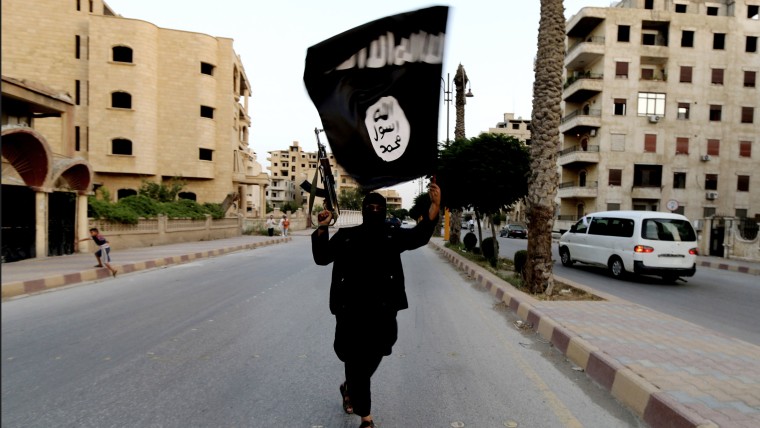There was a crisis of sorts for U.S. policy towards Syria in the summer of 2013, but I'm convinced much of the political world remembers the events poorly. The Beltway version is that President Obama drew a "red line" but blinked when it came time to follow through.
That's not quite what happened. Obama was convinced that Syria had used chemical weapons, and had decided to use force against the Assad government. But before launching strikes, the president turned to Congress to authorize the mission, just as many Republican lawmakers had recommended.
Congress balked. Lawmakers said the public, wary after disasters in Iraq and Afghanistan, simply had no appetite for yet another combat mission in the Middle East, and many of the same Republicans who demanded the White House get permission for airstrikes soon announced their opposition to the airstrikes. Some even used this as
the basis for fundraising. (Obama considered strikes anyway, but instead scored a diplomatic coup by ridding Syria of its chemical weapons.)
A year and a half later, Americans' attitudes appear to have shifted. Consider
a CBS News poll released this week.
Amid more executions by the militant group ISIS, Americans increasingly see the group as a threat to the U.S. Now, 65 percent of Americans view ISIS as a major threat -- up from 58 percent in October.... With concern about ISIS growing, support for the use of U.S. ground troops in the fight against ISIS has risen. For the first time, a majority of Americans (57 percent) favor the U.S. sending ground troops into Iraq and Syria to fight ISIS. In October, Americans were divided (47 percent favored and 46 percent opposed), and in September these numbers were reversed (39 percent favored and 55 percent opposed).
There is, of course, a political angle to all of this -- the White House recently sent lawmakers proposed language for an Authorization to Use Military Force against ISIS, effectively trying to get Congress' buy-in for a military offensive that began last August.
If lawmakers are sensitive to the prevailing political winds, polls like these probably make it more likely that Congress will at least consider doing their duty when it comes to authorizing force. Indeed, the scope of the AUMF may very well reflect these changing public attitudes, too.
But I'm also interesting in what, specifically, led to the public-opinion shift. In 2013, most Americans told Washington, "Don't you dare start another war in the Middle East." And yet, as 2015 gets underway, most Americans are evidently on board, not only with airstrikes, but with boots on the ground.
How'd this happen?
One possible explanation is the impact of propaganda. Remember, ISIS has several goals, but one of them is devoted to changing public attitudes in the West and baiting the public. ISIS wants to enrage Americans, specifically in the hopes of luring the U.S. military into a prolonged fight.
The
New York Times reports today that ISIS seems well aware of the impact of "shock value," so the militants are exploiting it at every available opportunity.
The killings have been both deliberately lurid and strangely intimate. Designed for broadcast, they have helped the Islamic State militant group build a brand of violence that shocks with its extreme brutality, yet feels as close to viewers as the family images on their smartphones. Broadcast specifically to frighten and manipulate, the Islamic State's flamboyant violence consumes the world's attention while more familiar threats, like the Syrian government's barrel bombs, kill far more people but rarely provoke widespread outrage.
The CBS poll suggests the manipulation is having the desired effect.
As for the practical implications of a ground war against ISIS, Kevin Drum
explained yesterday, "[T]he only way to defeat ISIS would be in grisly house-to-house fighting in Sunni strongholds like Mosul. We already know that U.S. troops can't do that effectively, and neither can the predominantly Shia troops controlled by Iraq. It would be a long, grinding, disaster of a war. But apparently the American public hasn't quite internalized that yet. They're becoming more and more enraged about ISIS, and they want to do something. That's a bad combination."
Terrorists use propaganda because they know it works.
